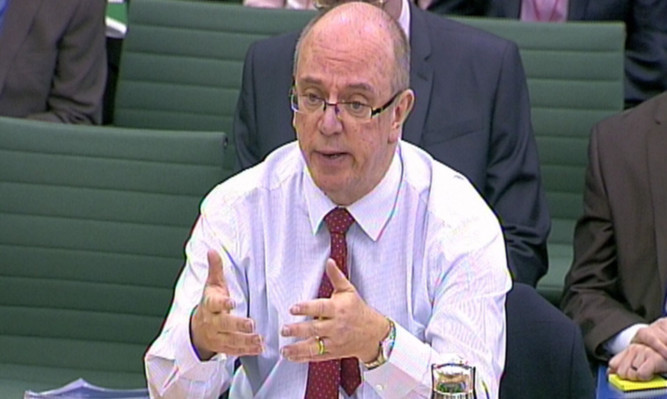
THE head of the NHS has been handed the equivalent of a healthcare assistant’s salary every year in tax bill perks, it has been revealed.
Sir David Nicholson who was criticised over scandals at Morecambe Bay and Mid Staffordshire trusts received £320,303 worth of benefits including a flat in London, a chauffeured car and first-class travel over the past six years.
But the public purse has also picked up the £110,000 total tax bill on his perk on top of his £215,000 a year salary.
Last night taxpayers’ groups demanded these “outdated and expensive perks” be axed.
Matthew Sinclair, Chief Executive of the TaxPayers’ Alliance said: “It’s bad enough that we are paying for senior civil servants’ pricey perks, let alone
picking up the bill to the taxman as well.
“Covering the tax liabilities of these benefits is secretly inflating the salary of some of Whitehall’s best paid mandarins.
“Families are already struggling with their own tax bills without them having to pick up the tab for senior civil servants’ tax as well.
“It’s time these outdated and expensive perks were axed.”
Sir David is among a number of senior civil servants who enjoy such perks including Sir Jeremy Heywood, the Cabinet Secretary, who was covered for a two-year tax bill of £49,243 and Bernard Gray, the chief of defence materiel at the Ministry of Defence, who had a £9,000-a-year tax bill paid for him.
Richard Bacon, a Conservative member of the public accounts committee, said he was “concerned” officials are being given tax-free benefits while the public is having to pay the taxman for theirs.
A Department of Health spokesperson said: “Some senior officials at the Department of Health need to travel extensively across England in order to stay in close touch with the NHS. Benefits in Kind payments are made to recognise their need to travel to carry out their roles.”
A tax office spokesman said: “Cars provided by an employer that are available for employee use are a benefit in kind for the employee and are taxable. These rules have been in place for 37 years.
“Employers may choose to pay the tax due on the benefit. If so any such payment will constitute an additional benefit which will also be taxable on the employee. This is quite a common practice among employers.”

Enjoy the convenience of having The Sunday Post delivered as a digital ePaper straight to your smartphone, tablet or computer.
Subscribe for only £5.49 a month and enjoy all the benefits of the printed paper as a digital replica.
Subscribe